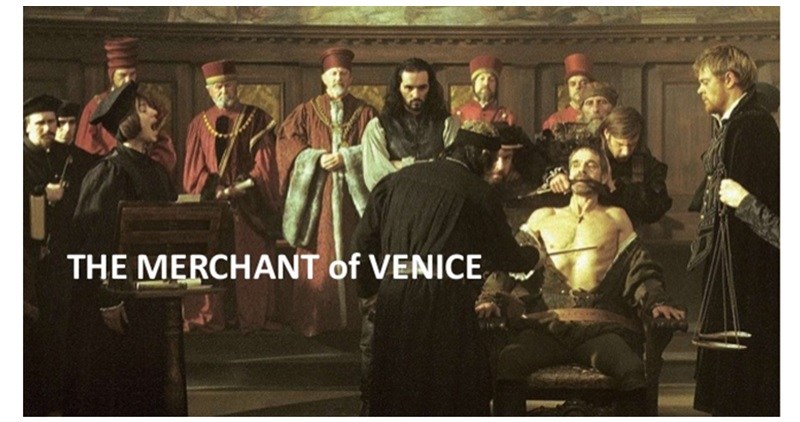
The Merchant of Venice play by William Shakespeare emphasizes appearances. There are several instances where the author shows how people create false appearances to out up a particular image about themselves (which is different from the reality), even if it’s expensive to put up with those appearances.
Read: Merchant of Venice: Complete Story
GET INSTANT HELP FROM EXPERTS!
- Looking for any kind of help on your academic work (essay, assignment, project)?
- Want us to review, proofread or tidy up your work?
- Want a helping hand so that you can focus on the more important tasks?
Hire us as project guide/assistant. Contact us for more information
Throughout the play, Bassanio tries to appear as a different person from what he actually was.
Bassanio used his appearances to impress people, in order to appear rich, and to gain a good reputation in Venice. He even confesses that he has used most of his money to build up that image. “‘Tis not unknown to you, Antonio, / How much I have disabled mine estate, / By something showing a more swelling port / Than my faint means would grant continuance” (Act I, Scene 1, lines 122-125), says Bassanio says.
Bassanio also uses his appearance to impress Portia of Belmont; he wants to appear rich so that he can impress Portia and marry her so that he can pay off all his debts to Antonio and to other people. Bassanio says, “…had I but the means / To hold a rival place with one of them, / I have a mind presages me such thrift, / That I should questionless be fortunate.” (Act I, Scene 1, lines 173-176)”. Bassanio tells Antonio that he would give gifts to Portia if he had enough money in order to appear as a nice person, and it will benefit him if Portia marries him.
Similarly, Shylock also uses his appearance to appear as a different person, and even to deceive people. In this play, Shylock appears to be a kind and generous man when Shylock says, “I would be friends with you and have your love, / Forget the shames that you have stained me with, / Supply your present wants, and take no doit / Of usance for my moneys, and you’ll not hear me: / This is kind I offer.” (Act I, Scene 3, lines 135-139). Bassanio assumes Shylock is agood man and agrees to take a loan from him.
Shylock also pretends to be friendly to Christians though he hates the,. Shylock says, “I am bid forth to supper, Jessica…But wherefore should I go? / I am not bid for love: they flatter me. / But yet I go in hate to feed upon / The prodigal Christian…I am right loath to go: / There is some ill a-brewing towards my rest, / For I did dream of money-bags tonight.” (Act II, Scene 5, lines 11-19). Shylock doesn’t want to go to dinner with the Christians, but is willing to go in order to appear friendly so that he can find out what they are planning.
Like Bassanio and Shylock, even Portia uses her appearance to deceive her suitors and the people of Venice. “Yourself, renown prince, then stood as fair / as any comer I have looked on yet / For my affection” (Act II, Scene 1, lines 20-23). Here, Portia tries to tell the Prince that he has a good chance of winning her over.
Later, you see Portia changing her physical appearance to deceive people of Venice to believe that she was a male. Portia says, “Therefore, prepare thee to cut off the flesh. / Shed thou no blood, nor cut less nor more / But just a pound of flesh: if thou tak’st more or less than a just pound, be it but so much / As makes it light or heavy in the substance, / Or the division of the twentieth part / Of one poor scrumple, nay, if the scale do turn/ But in the estimation of a hair, / Thou diest and all thy goods are confiscate.” (Act IV, Scene 1, lines 320-328). Had Portia not disguised like a man, other men in the court may not have taken her seriously, which could have resulted in Antonio dying.
In this play, Portia uses her appearance to choose a husband and also to save Antonio’s life as well, the play emphasizes appearance over reality.
So, to summarize, the actions of most of the characters in The Merchant of Venice suggests that appearances matter more than reality to the characters in this play.
Academic Questions
Q. Drama project with close reference to the play, ‘The Merchant of Venice’ illustrate how the author proves the theme ‘One should not be attracted by external appearances’ in about 750 words.
StudyMumbai.com is an educational resource for students, parents, and teachers, with special focus on Mumbai. Our staff includes educators with several years of experience. Our mission is to simplify learning and to provide free education. Read more about us.

Leave a Reply
You must be logged in to post a comment.